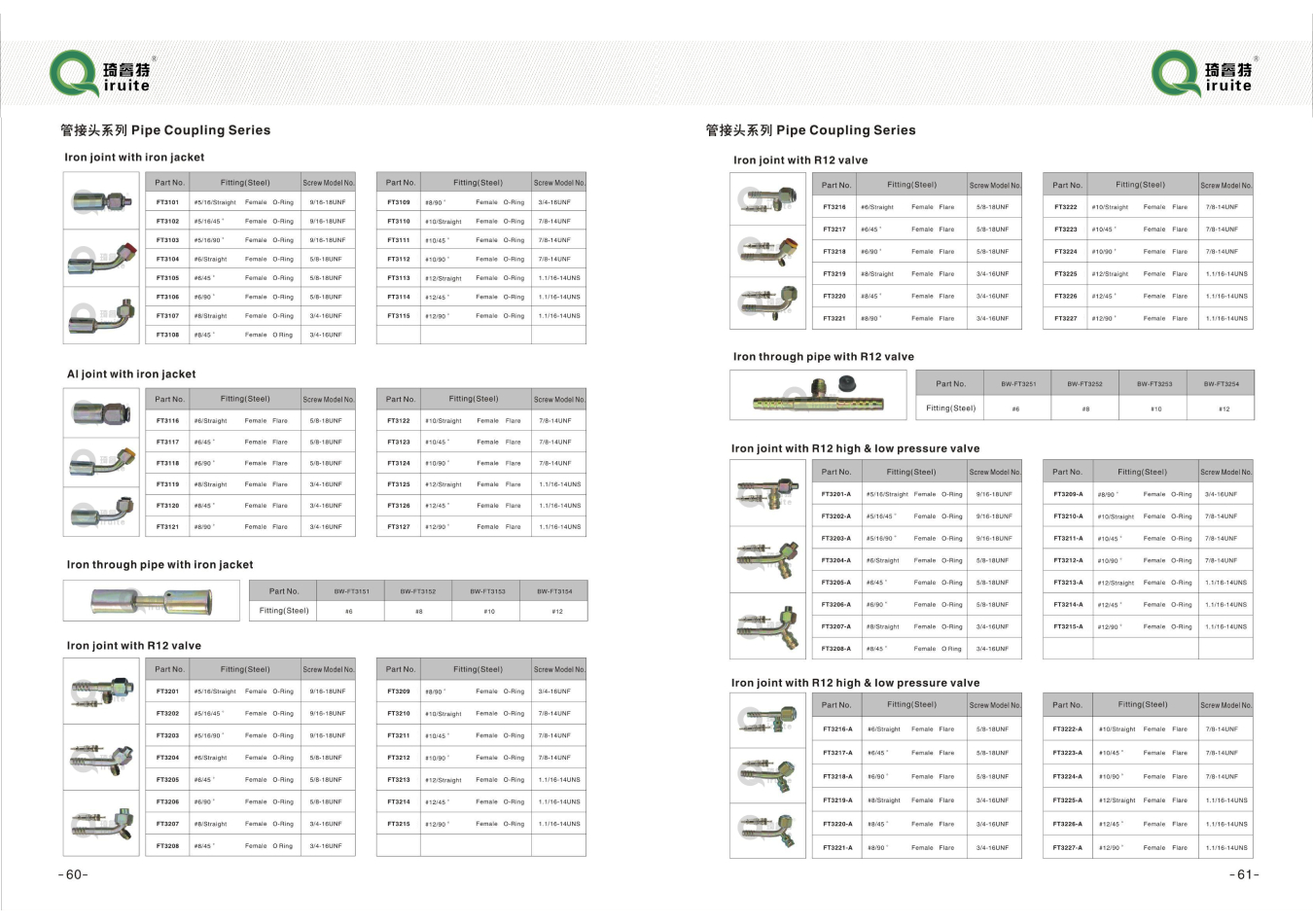Effective Solutions for AC Pipe Repair and Maintenance Techniques
Understanding AC Pipe Repair A Comprehensive Guide
Air conditioning (AC) systems are essential for maintaining comfortable indoor temperatures, especially during the sweltering summer months. However, like any mechanical system, air conditioners can experience issues over time. One of the most common problems that can arise is related to the AC pipes. Understanding AC pipe repair is vital for homeowners to ensure their systems operate efficiently and to avoid costly replacements.
The Importance of AC Pipes
AC systems utilize refrigerant that circulates through pipes to absorb heat from inside a building and release it outside. These pipes, typically made of copper or aluminum, are crucial components of the AC system. If there is a leak or damage in the piping, it can lead to a variety of problems, including reduced cooling efficiency, higher energy bills, and potential damage to other components of the AC unit.
Common Issues with AC Pipes
1. Refrigerant Leaks One of the most frequent problems with AC pipes is refrigerant leaks. This can happen due to corrosion, poor installation, or physical damage to the pipes. A leak not only reduces the system's efficiency but can also harm the environment.
2. Clogging Over time, dirt and debris can accumulate in the pipes, causing blockages. This can hinder the flow of refrigerant and reduce the system's ability to cool the air effectively.
3. Physical Damage AC pipes can be damaged by external forces such as construction work, gardening activities, or even heavy winds during storms. Weather-related damage can cause bends and breaks in the pipes, leading to significant issues.
Signs That You Need AC Pipe Repair
Recognizing the signs of a potential issue with your AC pipes is crucial for timely repairs. Here are some indicators that you may need to address your AC pipe system
- Reduced Cooling Efficiency If you notice that your AC system is no longer cooling your space effectively, it may be due to a leak or clog in the piping. - Indoor Humidity High humidity levels inside your home, despite running the AC, might indicate a refrigerant leak affecting the system’s performance. - Unusual Noises Gurgling or hissing sounds can suggest refrigerant leaks, while clanging noises might indicate loose or damaged pipes. - Increased Energy Bills A sudden spike in your electricity bills can be a sign that your AC system is working harder due to pipe issues.
The Repair Process
ac pipe repair

When it comes to AC pipe repair, it's important to consult with a qualified HVAC technician. Here is a general overview of the repair process
1. Inspection The technician will begin by inspecting the AC system to identify any visible leaks or damage in the pipes. They may use specialized tools to detect hidden leaks.
2. Leak Identification If a leak is suspected, various methods, including dye testing and electronic leak detectors, can help confirm its presence and location.
3. Repair or Replacement Once a leak is identified, the technician will determine whether it can be repaired or if the affected section of the pipe needs to be replaced entirely.
4. Recharging the System After repairs are made, the technician will recharge the system with the appropriate amount of refrigerant, ensuring that it operates efficiently.
5. Final Inspection A final inspection will confirm that the repairs have resolved the issue and that the system is cooling effectively.
Preventive Measures
To minimize the need for future AC pipe repairs, homeowners should consider the following preventive measures
- Regular Maintenance Schedule regular inspections and maintenance for your AC system. This can help identify potential issues early on. - Clear Surrounding Areas Keep the area around your outdoor AC unit clear of debris and vegetation to prevent physical damage. - Insulation Ensure that exposed pipes are properly insulated to prevent condensation and potential damage from freezing temperatures.
Conclusion
Understanding AC pipe repair is vital for maintaining the efficiency and longevity of your air conditioning system. By recognizing the signs of pipe issues and seeking timely repairs, homeowners can ensure a comfortable living environment while avoiding unnecessary expenses. Regular maintenance and taking preventive measures will not only extend the life of your AC unit but also enhance its performance when you need it most.
-
Ultimate Spiral Protection for Hoses & CablesNewsJun.26,2025
-
The Ultimate Quick-Connect Solutions for Every NeedNewsJun.26,2025
-
SAE J1401 Brake Hose: Reliable Choice for Safe BrakingNewsJun.26,2025
-
Reliable J2064 A/C Hoses for Real-World Cooling NeedsNewsJun.26,2025
-
Heavy-Duty Sewer Jetting Hoses Built to LastNewsJun.26,2025
-
Fix Power Steering Tube Leaks Fast – Durable & Affordable SolutionNewsJun.26,2025

